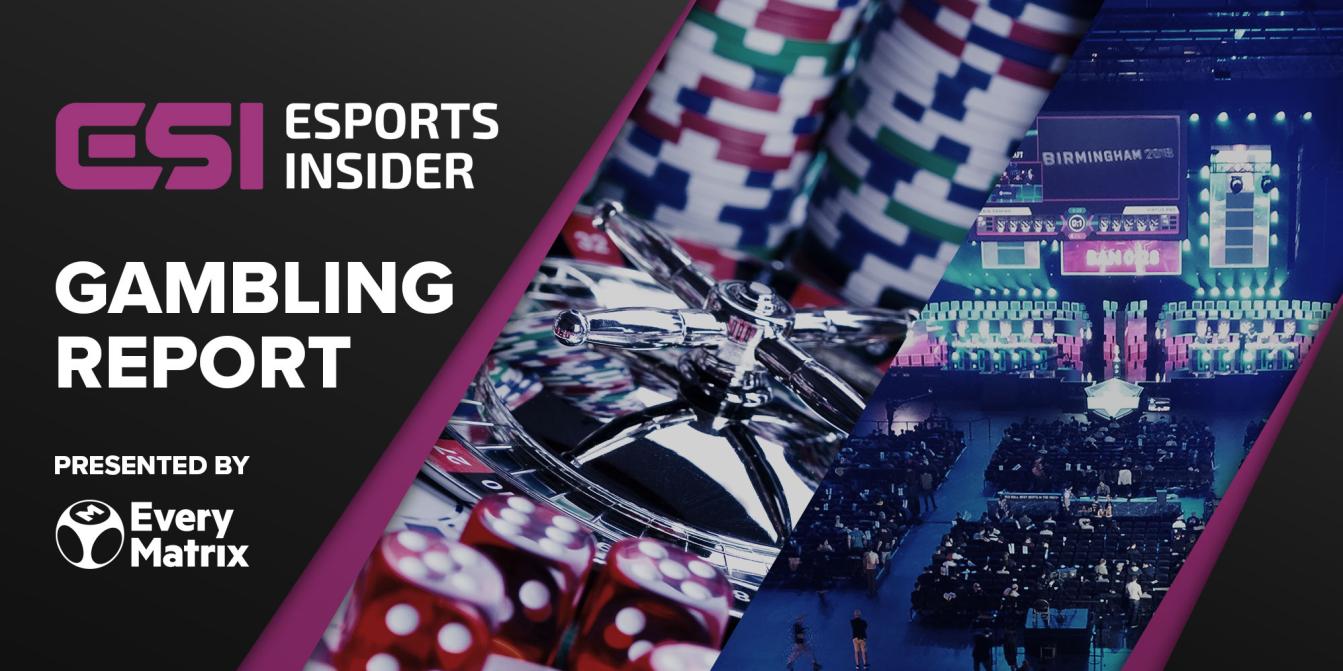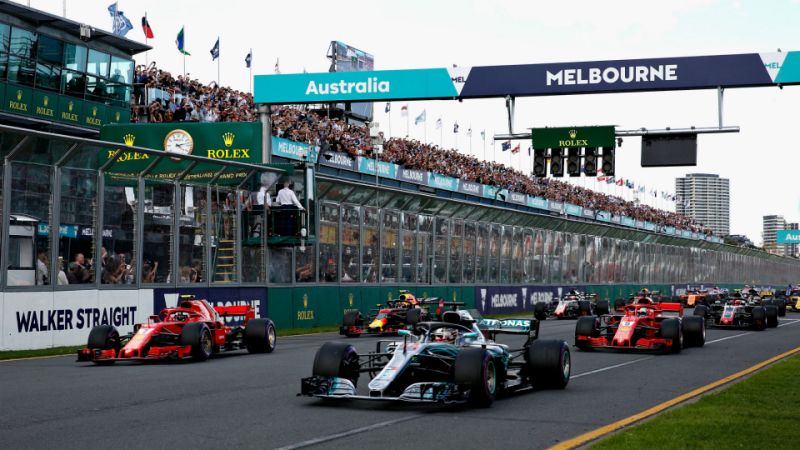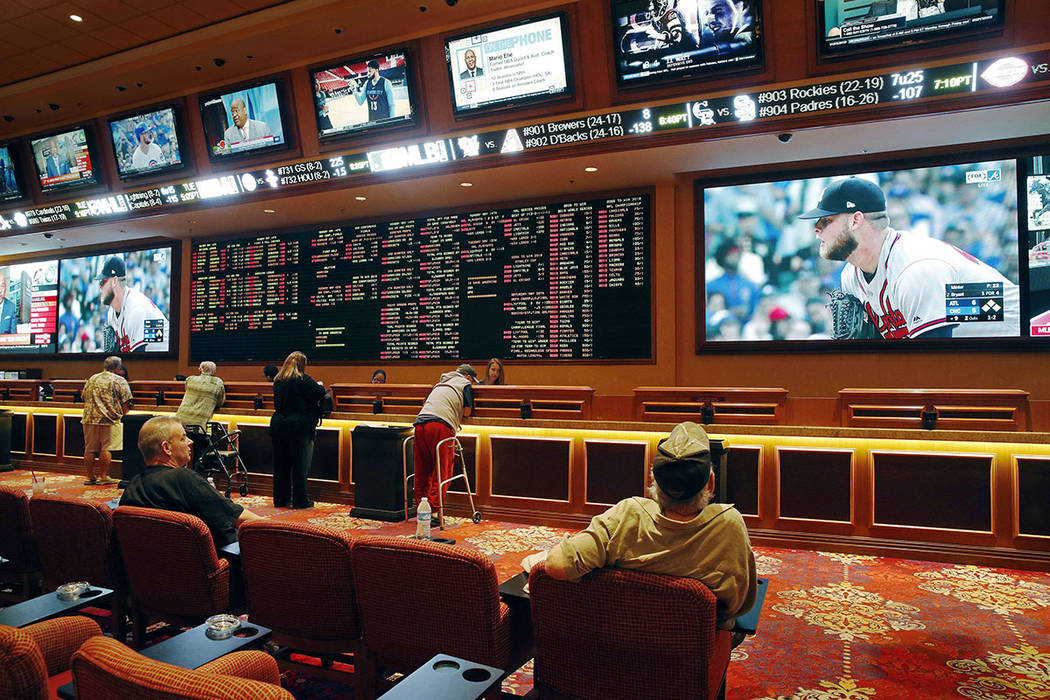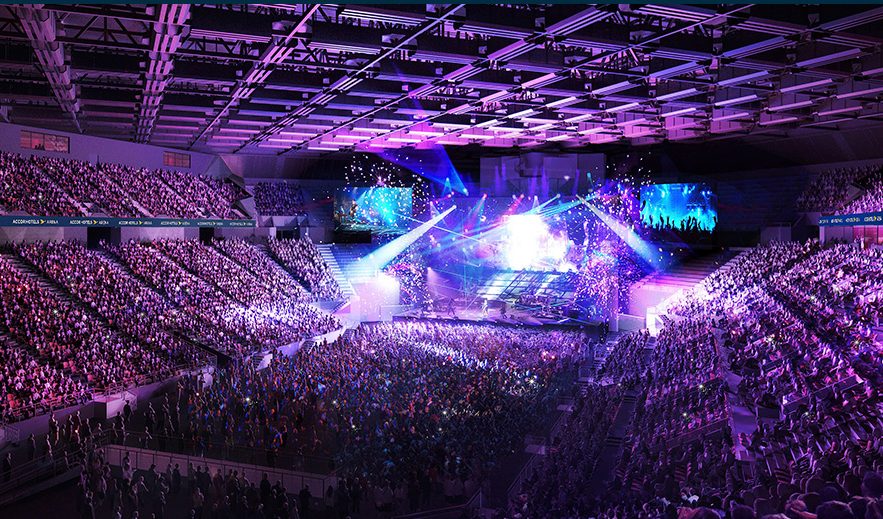The world remains at a global standstill with the very real threat of COVID-19’s continued spread and resurgence still looming. Mandated physical closures and the suspension of large gatherings have put many businesses and industries in a position of crisis.
Digital infrastructures have become universally adopted as a strategy for companies to remain in an active state; for some, it’s a workable solution, while for others, it’s a near-impossible endeavour to navigate.

The gambling industry, in particular, has seen its casino floors closed worldwide, while sports betting opportunities are hard to come by, with few sports being played at all. More concerningly, the current climate indicates this breeze won’t move in the other direction anytime soon, either.
It’s a dire time for betting operators, yet the circumstances seem to create a perfect storm for esports to ignite. As one of the few human competitions left standing in wake of COVID-19, lightning perhaps won’t need to strike twice for esports and its glowing betting handle.
Competitive gaming is finally starting to bake in the global gambling market, but will it be more than just a flash in the pan? Esports Insider will discuss this very topic in part two of this ESI Gambling Report, powered by EveryMatrix.
Preparing for impact
It’s not how trailblazers of the esports industry would have thought or hoped for, but it’s certainly undeniable witnessing the proliferation of gaming amid government shutdowns and mandatory stay-at-home orders.
Key stakeholders in the traditional sports business, such as the National Basketball Association, Major League Baseball, NASCAR, and Formula 1, are turning to gaming as a solution for lost programming and content. As a result, esports has seen impressive volumes of high-profile celebrity endorsements flood the space like never before. Virtual Grand Prix is securing air-time on ESPN, Fox Sports, NBC, and Kayo; while in Finland, professional hockey leagues migrated to NHL 20 and for the first time, settled finals on digital ice.
As far as receptiveness goes – it’s been impressively positive. Formula One’s Esports Virtual Grand Prix, for example, was said to have orbited 3,000,000 online viewers. Formula One’s Head of Digital Growth and Esports, Julian Tan commented on the success of the motorsport series’ strong showing in a SportsPro interview:
“It’s a testament to the deep desire from a general audience to be able to consume some racing entertainment and looking to esports as a form of escapism during this difficult time. Certainly, our first virtual Grand Prix performed really, really well and was our strongest esports showing since we entered that space.”

RELATED: ESI Gambling Report: Esports betting, a global lifeline for operators
As we reviewed in part one of this ESI Gambling Report series, the global gambling industry is creating opportunities of its own within the esports panorama. According to Luckbox CEO, Quentin Martin, the forecast is sunny with a definite chance of esports.
“We expect it to continue as increasing numbers of people are made to stay at home and with traditional sports showing no real sign of returning,” Martin told Esports Insider. “Realistically, it looks like traditional sports are going to be on hold for six months or more. The longer it goes on, the more chance there is that people will consider esports.”
At the onset of COVID-19, initial findings proved esports had more than just a buzz around it — esports has amassed a full-on swarm. Upticks in activity, volume, registrants, and everything in between, are building a strong case for esports and its breakthrough into the mainstream gambling market.
According to a report conducted by consumer research agency 2CV and market researcher ProdegeMR, esports gambling revenue is poised to double from the $7 billion (£5.8 billion) earned in 2019 worldwide to over $14 billion (£11.5 billion) in 2020 as a direct result of the coronavirus outbreak.
RELATED: Midnite joins Esports Integrity Commission
Martin Bradley, Research Director in Technology and Entertainment at 2CV, commented on the findings: “By 2022, the number of esports viewers is estimated to rise to 644 million worldwide, this is up from 454 million viewers in 2019. The COVID-19 pandemic has led to many forms of sports associated with gambling being cancelled or postponed, but is also a big opportunity for esports to get in front of this audience. Short-term growth is likely to come from sport-based games, but there are huge opportunities to make this more long-term, as long as consumers are educated properly on esports and what it can offer, as well as considering which kinds of events are best suited to a particular audience.”
Globally, sports betting revenue is estimated to be worth more than $220 billion (£180 billion), per IBIS World. If these valuations are on par, esports will still only capture a small fraction of the market at large. However, esports could be set to do more damage down the line considering the industry’s heightening trajectory and pace.
Moving the needle
While unimmune from the effects of COVID-19, the versatility of esports in a digital world has helped its betting precinct experience tremendous growth. Once an overlooked genre of betting, competitive gaming has become the subject of international conversation. Especially in areas such as Sin City, it’s become more than just talk.
Starting in late-March, the Nevada Gaming Control Board has issued a record amount of esports betting exemptions, approving wagers for six different games across several tournaments and leagues. Since then, the gambling capital of the United States has provided more esports offerings in less than a month than the country had in the entirety of esports’ lifetime.
Regulatory procedures for exemptions have not changed, either. Rather, the shift has come from the operators themselves, sending the demand for esports soaring. Outside Belarusian football and table tennis, odds for sportsbooks to offer wagers on human competition are slim-to-none. It’s a combination which has brewed a “perfect storm” for professional gaming according to University of Las Vegas International Gaming Institute Research Director, Brett Abarbanel.
“A major factor in why we didn’t see such an influx of esports bettings approvals before was actually a somewhat limited lack of demand in the sense that the Gaming Control Board has a lot of things that it has to do,” Abarbanel told Esports Insider. “So if there wasn’t a huge demand from sportsbooks to accept wagers on esports, then it wasn’t necessarily going to be one of their priority issues.”

RELATED: Nevada regulators approve ESL One Rio betting
Introductions into mainstream markets and media are beginning to make esports a bit more familiar to the masses. Traditional sports bettors and gambling stakeholders are inescapably tied to esports right now, whether they like it or not. For regulators and operators alike, it’s becoming a bit more clear that esports is in the neighbourhood of its most valuable betting markets.
“Now we’re seeing a lot more collaboration on that front. There’s this realization that all of this is now valuable to sportsbooks in terms of the ability to take wagers and hopefully stay afloat. So we’re seeing more collaboration between books; there’s a lot more time for the board to dedicate to these sorts of approvals,” Abarbanel added. “Esports itself, it starts to get more familiar when you compound that with the fact that esports itself, not just the ability to bet on it, but esports itself is becoming more mainstream.”
The call for gambling, in general, is at an all-time high, and the writing is on the walls. Many regulatory bodies are instituting preventative measures to curb destructive gambling behaviours brought on by global quarantines. At a more reasonable level, bettors are simply becoming more open to new markets. This is one of the reasons Midnite Founder, Nick Wright, believes esports operators should shift focus to welcoming potential new consumers.
“The predominant focus at this time should be to facilitate the transition of traditional fans into esports fans. The majority of people have grown up playing games like FIFA, Call of Duty or World of Warcraft, and gaming is now more culturally accepted as a whole,” Wright told Esports Insider. “By more household names and publishers embracing betting, we can only expect to see the audience grow.”
RELATED: How esports bookmakers are marketing to potential bettors
Esports DNA
Within jurisdictions across North America where sports betting is legal, esports is pitted in a category which requires separate application and approval processes for operators to accept wagers on events. These exemptions were previously few-and-far-between, and admittedly “not a scalable way of running the business,” Unikrn CEO Rahul Sood told Global Gaming Business. Now that the time is ripe, operators are looking to harvest a variety of esports offerings — but not without a degree of challenge.

“I think the reason that traditional operators haven’t gotten into [esports] is because they just don’t have the DNA to do it and the amount of investment was pretty high for them to jump into it because it is something completely new,” Rahul said.
When it comes to esports, there’s a wide learning curve most major bookmakers seem to be behind the bend on. Perhaps underestimated to some measure, newcomers are often rudely awakened by the intricacy of competitive gaming and its lack of a parallel to the betting markets of traditional sports. For companies like Unikrn, however, who have been at the forefront of esports betting innovation, insight into the audience and the market’s nuances can make all the difference when it comes to customer conversion.
RELATED: Midnite joins #HomeSweetHome event as betting sponsor
“It is a big investment; it has taken us years to build what we have built. It is a huge investment for traditional operators which are very comfortable with their revenue lines. Now that the world has changed, we are getting a lot of calls. It has been kind of beyond a nightmare in terms of the incoming calls. We’ve got B2B operators that want to partner with us now and we are sifting through the opportunities,” Rahul said.
The global spike in interest from esports operators is indeed a catalyst for the industry as a whole. Having major, non-endemic sportsbooks back at the table will exponentially grow esports awareness, legitimacy, and revenue— but this doesn’t come free.
Integrity and player protection is the heart of this biological system; though, esports very well could be beating at an unsafe, and unsustainable rate.
A long way home
May 1st figures delivered by Macau’s Gaming Inspection and Coordination Bureau revealed casino gaming revenue dipped 96.8 percent year-on-year to a record low. These reports are startlingly common as well, and it’s just one example of how the pandemic has created blistering hardships for operators.
With very few markets left to hold onto, esports truly has extended its hand to digital casinos attempting to survive the fall from COVID-19. Amid the panic onset by plummeting revenue, the rush to add esports as a product offering is creating a bit of friction.
RELATED: GRID & GameCo: Building an esports betting product for all
One clear example of this occurred earlier this month when issues of integrity flared up around the NBA 2K Players Tournament. In an instant, bookmakers suspended all bets on the event when made aware of its results being leaked online. While still more of a miscommunication than a question of fair play, the incident highlights an obstacle esports is all too familiar with – competitive integrity.
It’s a key area for all betting markets, not just esports. However, it’s an element that has significantly pumped the brakes on the ascent of esports in the global betting market. The lack of a single governing body ensuring player protection raises certain concerns about the digital sport’s legitimacy; and in the United States’ budding sports betting market which currently requires separate applications and approvals to allow for esports wagers, it makes for an impossible administrative task without the possibility of blanket approvals.
A key driver of Nevada’s push in the market is mainly thanks to its March 2017 Memorandum of Understanding between the Gaming Control Board and the Esports Integrity Commission (ESIC). Members of ESIC are held to a standard of competitive integrity often giving regulators the comfort and certainty they need to give esports applications the stamp of approval. In the eyes of ESIC Commissioner Ian Smith, “esports is more or less the only show in town,” which has created some abrasion in his line of work.
RELATED: Nevada sportsbooks permitted to accept bets on League of Legends, Overwatch
“The problem for anybody outside of the industry and for many inside the industry is the question: is it safe? Is it safe to offer markets on esports matches? And of course, the answer to that is it depends, and it very much comes down to the fact that there is no central point to go to for that information to determine what tournament operators are operating in a way that the betting industry could regard as safe.”

They’re critical questions needing to be answered if esports hopes to someday swagger a competitive betting handle in the sports betting industry. An ESIC membership card can alleviate many of those doubts, but for a large share of the market, specifically within franchised tournaments, there simply isn’t a definitive answer.
It’s easy for newcomers to pigeonhole esports as one thing, when in reality competitive games share vast differences between one another that mirror disparities between hockey and basketball, for example. It boils down to a lack of understanding, and it’s something operators should be doing their homework on. Especially so because when it comes to integrity in esports “you really have to look at this game by game,” according to Smith.
RELATED: EveryMatrix enhances offering to better accommodate esports
“Now you’d assume that an international governing body like FIFA would be on top of the integrity issues raised within the context of their esports offering. But you’d be wrong because there’s a couple of guys at FIFA running their esports operation, but 95 percent of it is outsourced to [Electronic Arts], the producers of the game, the tournament organizers.” Smith added. “There’s no coherence to anyone’s approach on this.”
A gap in the road
While shortfalls in awareness can raise rightful concerns of their own, larger questions arise when you start to dig deeper into the labyrinthine of esports integrity. Conceivably surprising to many, there is a great stretch of uncharted territory at the corner of esports’ largest leagues and betting markets. Without disclosures of integrity guidelines from the likes of industry powerhouses such as Riot Games and Activision Blizzard, establishing any independent assessment of a product’s safety “is very, very difficult” in Smith’s opinion.
“There’s no standards, there’s no adherence to any kind of central idea of what’s acceptable and not acceptable. What Blizzard’s doing right now may feel to them perfectly adequate and good, but objectively may be garbage,” Smith told Esports Insider. “You don’t know for example Riot’s internal procedures with respect to integrity in League of Legends is – only Riot knows that.”

On May 7, after ESI had spoken to Smith, Activision Blizzard announced a landmark, multi-year partnership with sports data provider Sportradar. The arrangement is said to implement “comprehensive” integrity procedures and combat betting-related corruption in both the Call of Duty League and Overwatch League. The deal arrives at a crucial time for Activision Blizzard, which recently saw its pair of developer-operated leagues receive blessings from the Nevada Gaming Control Board for sportsbooks to accept wagers on.
RELATED: Sportradar tapped for Activision Blizzard’s franchised leagues
Since its establishment in 2016, ESIC has stood at the forefront of esports, fostering relationships with publishers, developers, and event organisers to safeguard the integrity of games. The nonprofit organisation boasts an impressive catalogue of members and supporters to help fight for the same cause; a club which ensures pivotal stakeholders such as tournament operators, bookmakers, and government officials are following essential anti-corruption codes and regulation.
Even with the impressive progress made by ESIC on this front, the subject of regionality in the digital world of esports has required complex manoeuvring. Spending significant time developing in conjunction with regulators across the world determinations of safe products.
RELATED: ESI Gambling Report: Sex, drugs and esports
“You’ve got this full range that is very jurisdictional in a world where jurisdiction means nothing because [esports] is online,” Smith added. “Regulation has always been focused on geographies, on countries, on jurisdictions, and that’s hopelessly inappropriate for esports. So we’re at the beginning of an exploration of what works and what doesn’t. But the key questions are: what events, what leagues, what tournaments, what games are safely presented in a way that makes them a reasonable risk for a betting operator or regulator.”
Gamble aware
There’s certainly a lot to unpack when it comes to understanding esports’ stake in the global gambling market; especially now so that the market has been injected with adrenaline inadvertently by the effects of COVID-19. Matters are moving fast for esports and its betting district. While it’s a development likely welcomed by a majority of surrounding industry stakeholders, the maturing market may be growing too fast for its own good.
It would be wrong to say the growth of esports in the betting scape is at all damaging because contrarily, it’s a catalyst for the entire industry. Rather, the unprecedented speed in which esports has penetrated sportsbooks around the world is now possibly highlighting some of its weak points, such as some of the lingering integrity concerns outlined by ESIC.
RELATED: ESI Gambling Report: Integrity fees in esports
The concept of problem gambling is often overlooked in relativity to esports – in materiality, it’s a key part of the conversation. One of the concerns with esports betting at large is related to its audience; with an average age far younger than that of traditional sports betting punters, esports becomes a high-risk area for underage bettors.
“One of the huge concerns with esports betting globally has been how easily it accesses underage gamblers and youth gamblers,” Abarbanel told ESI. “When you combine that with certain concerns surrounding technology consumption, video gaming consumption, the World Health Organization issuing its decision on video gaming disorder last year, you start to see a lot of pushback from different groups, whether that be anti-gambling groups or different family groups, or regulators.
“It tends not to be discussed much, especially right now when we talk about the massive explosion of esports betting. It’s not just about making sure that the bet is fair. It’s about having the tools available, whether it be the operator or the jurisdiction, to ensure the ability to minimise to the extent they are able problem gambling.”

Consumer protection may not be top of mind for operators and industry drivers just yet, but it’s a topic that doesn’t hit too far from home. Not long ago, an unregulated skin gambling market had once, like the current state of the world, hit pandemic proportions, and is incontestably linked to gaming. It’s a can of worms waiting to be opened, but one that will feed the birds of prey as competitive gaming blossoms in the gambling market.
RELATED: ESI Gambling Report: Is Valve hanging on by the Skin of its teeth?
It’s why companies like the Committee of Advertising Practice (CAP) are in the background working ahead of future run-ins. On April 23rd, CAP declared its intent to begin assessing the dynamics attached to betting-related esports advertising on UK channels.
Growing pains may very well hint towards the breakthrough of esports in the global gambling market. While these obstacles won’t be celebrated, they are defining areas of improvement for esports as its gambling district approaches its coming of age. As mentioned earlier, the esports gambling industry is at a point of exploration, and for the most part, is unmapped territory.
Right now, aficionados can find solace in the buffet of opportunities in Nevada, the opening of dialogues around the world, and the esports cameos in the mainstream market. The positives far outweigh any potential weak link in the esports betting chain, and we’ll be here to cover every inch of its development.
If you’re looking to sink your teeth into some of the latest gambling data coming out of the esports betting world, EveryMatrix has released a recent report on some of the key takeaways to take from esports betting over the last two months. Get the full report here.

